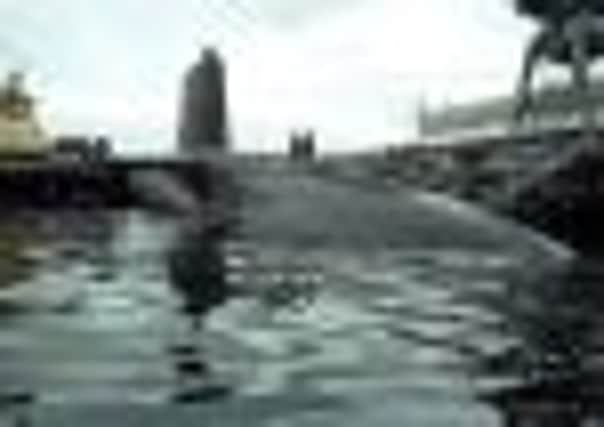Andrew Wilson: SNP must aim for a meeting of minds on Nato membership


On one such regular visit to “the Broons” I was entranced to stumble upon a Campaign for Nuclear Disarmament (CND) rally in the park. I was 11 and in the summer between primary and high school.
I have a number of memories of that event, but the chief one was running back to the house to ask for pocket money to buy a CND T-shirt which “cost only 32p”. I rushed back with 50p to find, in fact, that was the size and not the price which was £2. Crestfallen, I sat and listened to the speeches and was hooked.
Advertisement
Hide AdAdvertisement
Hide AdI know this demonstrates many things about me which would place me in the category of “odd”, but there we go.
The chief point I make is that this was my memory of being politicised and it was into membership of CND I went long before joining the party of my calling.
It was the early 80s and so much was in flux and what scared me so was the sense that we had weapons that could destroy the world and they were here in my country and we had so little power to do anything about it. How could this be so, and what could be done?
The point of this tale is to demonstrate that this issue, along with the closure of Ravenscraig a decade later, were defining anchors of my outlook and perspective on politics as a youngster. So, as the SNP considers the defining debate of its conference in Perth this month on Nato membership, my perspective should be read with this in mind.
As the Scottish Government sets out the vision of the starting line from which an independent country will be run, the question of the international treaty obligations we will inherit matter enormously.
Nato membership is one such treaty.
To date, the SNP has said it will withdraw despite the fact that its 22 member states see it as critical to their defence and security and many more want to join them.
At its conference the party will debate a motion from Angus Robertson, MP, to reform that.
He argues that we should remain in, subject to an agreement that Scotland can become free of nuclear weapons in the same way as Nato members Canada and Greece have done. For me this is a no-brainer.
Advertisement
Hide AdAdvertisement
Hide AdThe argument that in Nato we must both remain host to an expensive nuclear arsenal and leave our morals and brains at the conference door is also wrong. The reality of the experience of Canada, Greece, Norway, Denmark and Iceland and many others demonstrates that.
I admire, respect and love many of the people who will be arguing against from a principled position. I also think such meaty debates enhance the conduct of public life and the strength of our politics.
But I have long taken the view that it is mission critical for the referendum choice to present the highest common denominator in the picture of the country that will embark on its new journey.
So find the point on which most people can converge and leave the future democratic choices on the shape that country takes to future elections and debate. Barely one in ten Scots tell pollsters that they want to see Scotland leave Nato.
Defence co-operation is hugely important, and we need to demonstrate to all our neighbours that we will remain active in reforming the international institutions we are part of, rather than opting out. That is not in our nature as a nation. We have never been bystanders.
There is a possibly apocryphal story from the Uefa cup final of 2003 when thousands of Celtic fans converged on Seville using all means of transport possible. After the game, a couple of fans were hitching home when a car of fellow Celts stopped to offer them a lift. “Where are you headed?” asked the hitchers. “Edinburgh,” came the reply. “No, you’re fine then,” they said, waving the car on. “We’re going to Glasgow.”
This is how I feel about those who agree on the case for independence, but only if they can define more than the starting point but also the frame of what they politically believe beyond that.
In doing so, they unnecessarily narrow the base of support they need to achieve their goals. They risk remaining stuck in a Spanish lay-by when the offer of transport much closer to their desired destination is there for the taking.
Advertisement
Hide AdAdvertisement
Hide AdThe irony on the Nato debate is therefore that if the SNP votes to keep a position on withdrawal this month, its chances of ever actually leading the country out will have diminished because the chances of a Yes vote will have, too.
The debate will therefore signal an important tonal point about whether the SNP is ready to lead a win against the current odds.
Recent history demonstrates they might just be up to the task. «